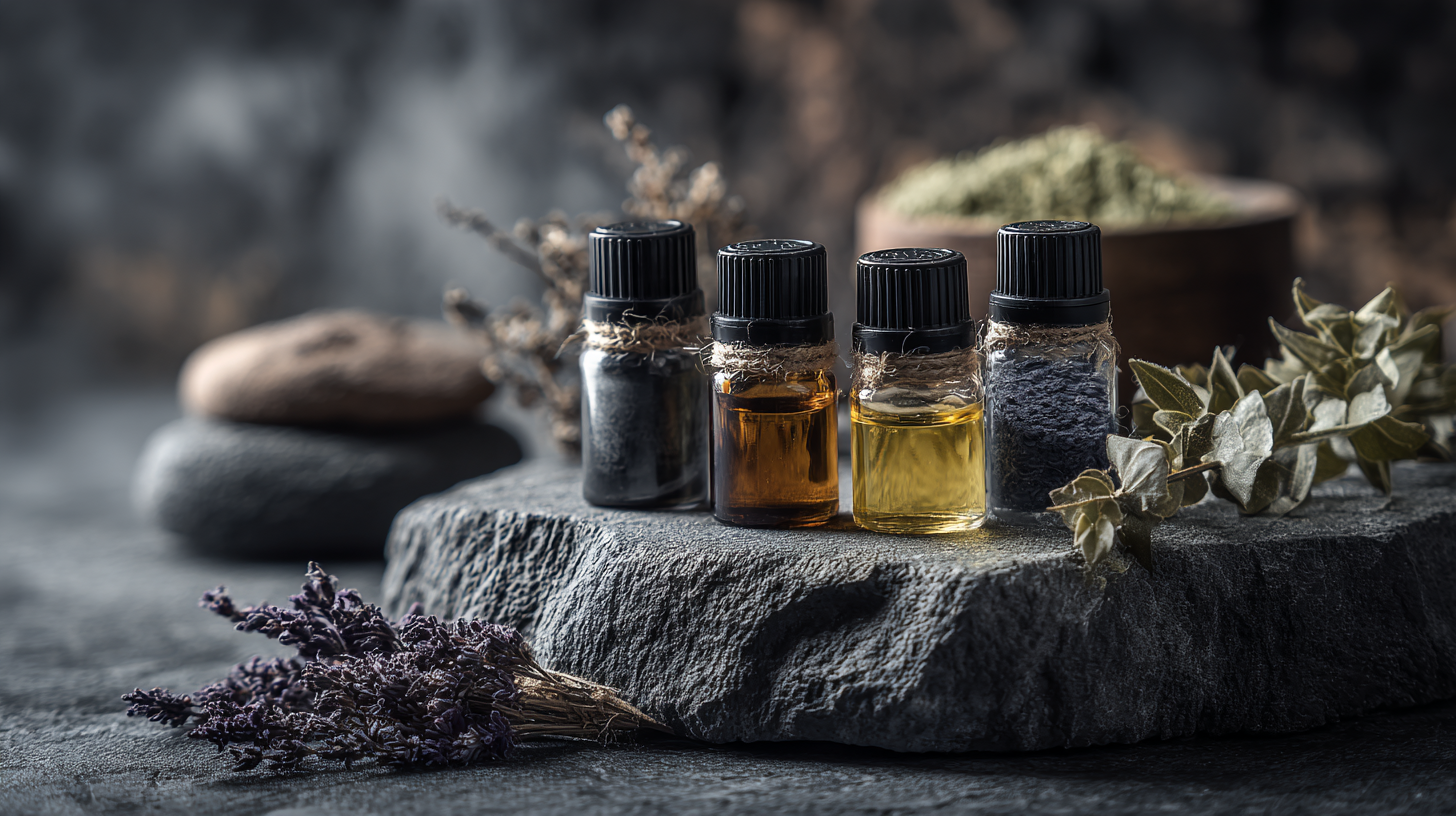

In the world of aromatherapy and wellness, the significance of quality Essential Oils cannot be overstated. As more consumers and businesses seek out these aromatic compounds for various applications, the importance of sourcing from reputable suppliers has become paramount. This blog will delve into the essential strategies for identifying and partnering with the best Essential Oil suppliers globally. We will explore the unique characteristics and uses of different types of Essential Oils, providing insights into their sourcing and the alternatives available. Whether for personal use, therapeutic practices, or commercial products, understanding the landscape of Essential Oil procurement is crucial for ensuring quality and effectiveness. Join us as we unlock the secrets to sourcing premium Essential Oils that meet both quality standards and diverse needs.

When sourcing essential oils, it’s crucial to identify the key qualities that differentiate top suppliers from the competition. According to the International Organization for Standardization (ISO), nearly 70% of suppliers do not meet globally recognized quality standards. Therefore, prioritizing certifications such as ISO 9001 and Good Manufacturing Practice (GMP) can provide a significant advantage. These certifications ensure that the oils are produced in a controlled environment and meet stringent quality criteria.
**Tip:** Always request documentation of quality tests, such as Gas Chromatography-Mass Spectrometry (GC-MS) reports. These analyses reveal the chemical composition of the essential oil, helping verify authenticity and purity.
Moreover, sustainability and ethical sourcing have become imperative in the essential oil industry. A report by Research and Markets indicates that consumer demand for sustainably sourced products has increased by over 30% in the past five years. Suppliers who demonstrate commitment to sustainable practices, such as fair trade certification and eco-friendly farming methods, not only contribute to the well-being of their communities but also resonate with environmentally conscious consumers.
**Tip:** Evaluate suppliers based on their sourcing transparency—those who are open about their supply chains are often more trustworthy and committed to ethical practices.

When sourcing essential oils, conducting effective research on global suppliers is paramount. The global supply chain landscape is rapidly evolving, with a projected market growth from $26.25 billion in 2024 to $63.77 billion by 2032, highlighting an 11.7% compound annual growth rate. This presents an unprecedented opportunity for businesses in the essential oils sector to connect with reliable suppliers worldwide. To navigate this complex environment, it is essential to utilize advanced tools and methodologies for supplier evaluation, including assessments of quality, sustainability practices, and technological capabilities.
The importance of sustainability in supply chain management cannot be overstated, especially with new regulations like the Corporate Sustainability Due Diligence Directive (CSDDD) aiming to enhance corporate responsibility in global supply chains. Suppliers who prioritize sustainability not only align with regulatory expectations but also appeal to eco-conscious consumers. By leveraging technological advancements and data analytics, businesses can gain valuable insights into supplier performance and compliance, thereby making informed decisions that enhance the overall quality and reliability of the essential oils they procure. Investing time in thorough research will ultimately lead to stronger partnerships and a more resilient supply chain.
When sourcing essential oils, evaluating supplier certifications and distillation methods is critical to ensuring product quality. According to the Essential Oils Market global report by Grand View Research, the industry is projected to reach USD 13.94 billion by 2025, driven by the increasing demand for high-quality, pure essential oils. Suppliers demonstrating recognized certifications such as ISO 9001 for quality management acquire a competitive edge, as these designations assure buyers of consistent quality and compliance with international standards.
Another vital aspect is the distillation method employed by the suppliers. Steam distillation, the most common technique, significantly impacts the oil's purity and therapeutic properties. Research published in the Journal of Essential Oil Research highlights that improper distillation can lead to lower concentrations of active compounds, resulting in inferior quality essential oils. Buyers should prioritize suppliers using advanced techniques like fractional distillation, which enhances the retention of specific compounds, ensuring a premium product. By meticulously evaluating these factors, buyers can unlock the best sourcing opportunities in the essential oil market.
| Supplier Location | Certification | Distillation Method | Quality Score (1-10) | Years in Business |
|---|---|---|---|---|
| France | ISO 9001 | Steam Distillation | 9 | 20 |
| India | USDA Organic | Cold Press | 8 | 15 |
| Egypt | GMP Certified | Steam Distillation | 7 | 10 |
| Australia | Kosher Certified | Steam Distillation | 9 | 12 |
| United States | Non-GMO Project Verified | Cold Press | 10 | 18 |
Building strong relationships with essential oil producers is crucial for ensuring the quality and sustainability of the products you source. Establishing trust is the first step. Take the time to visit farms and production facilities whenever possible. This hands-on approach not only helps you understand the methods and practices used in oil production but also allows you to forge personal connections with the producers. Open communication is key—discussing expectations, quality standards, and ethical sourcing practices sets a solid foundation for a fruitful partnership.

Additionally, consider collaborating with producers beyond just transactions. Engage in knowledge exchange regarding cultivation techniques or sustainable practices. This can foster a sense of shared purpose, encouraging producers to invest more in their craft for a mutual benefit. By participating in their growth journey, you can also ensure the authenticity and quality of the oils you source. Strong relationships built on trust, collaboration, and shared values ultimately result in a reliable supply chain, delivering the best essential oils while supporting responsible production practices.
Sourcing essential oils requires a commitment to sustainable and ethical practices. One effective strategy is to prioritize suppliers who engage in environmentally friendly cultivation methods. This includes supporting farms that practice organic farming and utilize biodiversity to maintain healthy ecosystems. By choosing suppliers who avoid harmful pesticides and fertilizers, businesses not only ensure the purity of their essential oils but also contribute to broader environmental health and sustainability.
Additionally, ethical sourcing practices involve fostering fair trade relationships. Engaging with suppliers who provide fair wages and proper working conditions for their laborers is crucial for building a sustainable production model. This approach not only supports the communities involved in the production of essential oils but also enhances the quality of the products through committed craftsmanship. Understanding the social and economic impacts of sourcing decisions enables businesses to create a more transparent supply chain, ultimately benefiting both the producers and consumers. By focusing on these sustainable and ethical practices, companies can unlock a wealth of high-quality essential oils while promoting a more responsible and equitable industry.